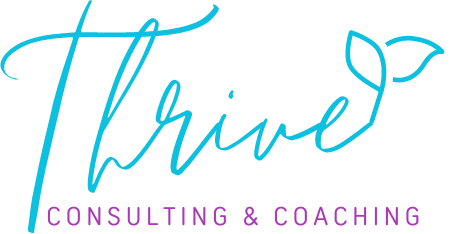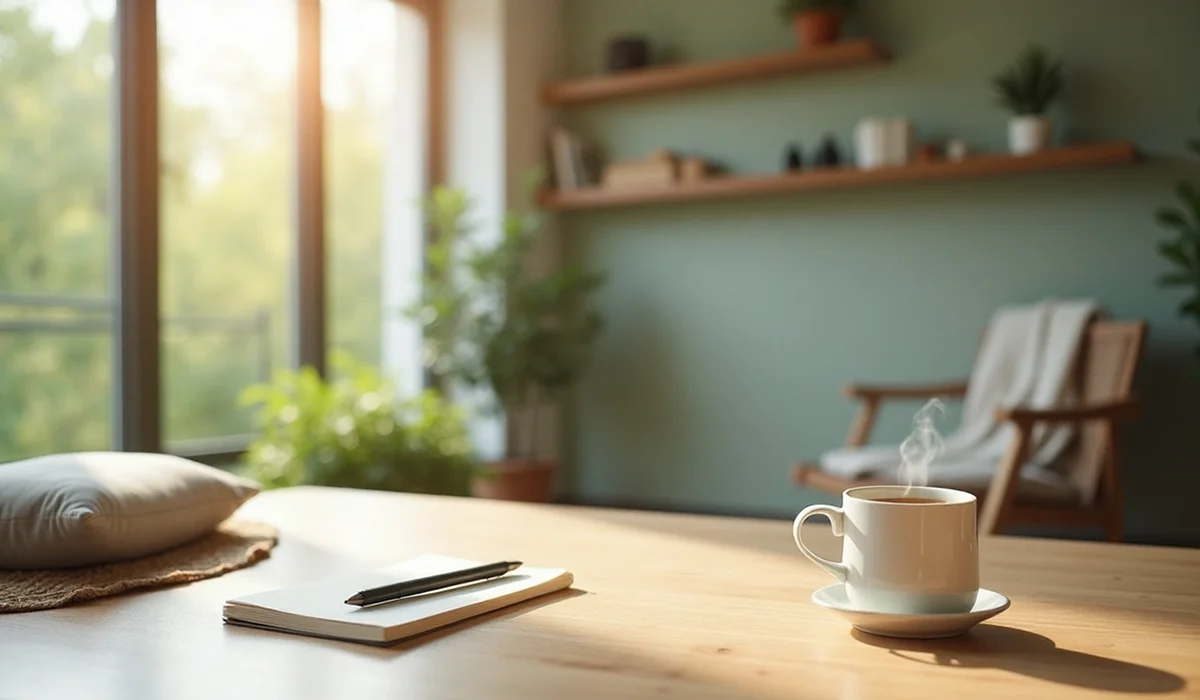Our minds struggle to stay clear as information bombards us from every direction. Notifications never stop pinging, thoughts keep piling up, and chaos becomes our normal state. This mental clutter does more than take up space in our heads—it pulls us off balance and stops us from living in the moment.
Mental clutter weighs us down with unnecessary thoughts, worries, and distractions, much like an overflowing closet filled with chaos. Research shows that messy spaces associate with higher levels of cortisol—our body’s main stress hormone. Mental decluttering offers more than just a sense of organization. A clear mind creates space for focused thinking and mental clarity. The goal isn’t to empty your mind completely but to arrange thoughts in ways that help rather than overwhelm you.
This piece explores practical ways to declutter your mind and change your inner world. You’ll discover daily practices and creative tools that bring balance and clarity to your thoughts.
What is Mental Clutter and Why It Matters
Mental clutter builds up when thoughts, worries, and distractions flood your mind. This invisible burden makes clear thinking and focus impossible. Your cognitive resources take a hit every day, and a persistent mental fog starts to cloud every part of your life.
Types of mental clutter we carry
Most people deal with different kinds of mental noise:
- Excessive worrying and rumination about past events or future scenarios
- Information overload from constant digital bombardment and notifications
- Unresolved emotions like guilt, shame, or outdated dreams
- Task-related anxiety from overwhelming to-do lists and commitments
- Negative self-talk and limiting beliefs that drain mental energy
These mental distractions aren’t just temporary annoyances. They stick around and slowly eat away at your mental bandwidth.
How it affects clarity of mind and focus
Mental clutter does more damage than just causing momentary distraction. Princeton University’s research shows that cluttered environments hurt our task completion and mental health. Brain scans using fMRI reveal something interesting – a clear mind helps us focus better, process information faster, and work more efficiently.
Our brains work best with order. Mental chaos drains our thinking power quickly. Studies paint a clear picture – women’s homes filled with clutter show higher cortisol levels. People can’t sleep well in messy rooms. Research also shows that clutter doubles our chances of picking unhealthy food.
The psychological benefits of decluttering your mind
A clear mind brings amazing psychological benefits. Studies prove that decluttering boosts self-worth and creates healthy habits. It also leads to increased efficiency. The University of Connecticut found something remarkable – less clutter means less stress. People feel happier, less anxious, and more confident.
A decluttered mind helps you:
- Focus and productivity as distractions fade away
- Emotional regulation through lower anxiety and stress
- Decision-making abilities with better cognitive flexibility
- Sleep quality with a calmer mind at bedtime
- Creativity with more mental space for fresh ideas
The link between mental clarity and well-being isn’t just theory. Research backs it up by showing how clutter brings down life satisfaction.
Simple Daily Practices to Declutter Your Mind
Your mind needs space to work at its best. Daily mental decluttering helps create this space. Simple techniques take just minutes but can make a big difference in clearing your thoughts.
Brain dump: get it all out
The brain dump works like hitting a reset button for your mind. I just grab a notebook and pen to write down everything in my head—tasks, worries, ideas—without filtering anything. Moving thoughts from mind to paper frees up mental space and reduces what psychologists call “cognitive load”.
The best way to make this work:
- Take 5-10 minutes each day, especially when you feel overwhelmed
- Write everything without judging your thoughts
- Do this before big projects or bedtime
- Look back later to find tasks you can act on
This helps stop overthinking because thoughts on paper become easier to handle than the overwhelming mess in your head.
Journaling for emotional release
Emotional journaling goes deeper than casual writing. You process your feelings through written words. Research shows this practice helps reduce anxiety, lifts mood, and can even boost your immune system. Writing gives you some distance from strong emotions so you can handle them better.
I spend 15-20 minutes writing about emotional experiences to sort out complex feelings. This helps me learn about patterns that usually hide under mental chatter.
Mindfulness and breath awareness
Watching your breath creates instant relaxation that benefits your health long-term. This basic form of meditation needs nothing except your attention.
Feel each breath move in and out without trying to change it. Begin with 10 minutes twice daily, then work up to 20-30 minutes. Regular practice kicks in your body’s natural relaxation response and fights stress.
Short solitude breaks during the day
Think about the last time you were completely alone—no TV, phone out of reach. Your mind needs these moments to reset. Even 10 minutes by yourself helps clear jumbled thoughts.
Sit outside with tea and let your mind wander. These quiet moments might feel strange at first as hidden thoughts come up, but they lead to clearer thinking and inner calm.
Physical and Creative Tools for Inner Clarity
Physical activities and creative pursuits can clear your mind better than mental techniques alone. These external tools work with internal practices to create an integrated way to declutter your mind.
Exercise to reset your mental state
Physical activity does more than build your body—it refreshes your digital world. Exercise releases endorphins while lowering cortisol and adrenaline, your main stress hormones. A simple 20-minute walk can clear your mind and reduce stress naturally.
The positive effects last longer than you might think. Regular exercise boosts attention, cognitive flexibility, and focus. Studies show that people who exercise have all but one of these benefits: a 26% lower risk of major depression. Even on days when I lack motivation, moving my body creates mental space that thinking alone can’t match.
Crafts and hobbies that calm the mind
Creative activities give you a meditative break from mental noise. Relaxing crafts help with problem-solving and decision-making while keeping you mindful. You need sustained concentration for activities like coloring, knitting, or creating mandala stones, which naturally takes your mind off daily worries.
Your brain enters a state where time seems to stop during creative flow. This focused attention works like active meditation that clears your mind by creating space for single-pointed focus.
Spending time in nature
Nature gives you exceptional mental clarity. Research shows that natural environments boost mental well-being, reduce depression, and improve cognition. Just 10 minutes of sitting or walking outdoors can substantially benefit your mental health.
Nature’s healing power works through many channels—visual beauty, natural sounds, and the lack of digital distractions all help clear your mind.
Digital detox and screen boundaries
People spend nearly 6 hours and 37 minutes daily on devices. Setting healthy screen boundaries is crucial for mental clarity. Too much screen time affects your psychological wellbeing and increases stress and anxiety.
Screen-free zones and times throughout your day help you maintain a balanced relationship with technology. You can designate specific areas in your home as device-free spaces or set times when screens are off-limits—especially one hour before bedtime to protect sleep quality.
Note that clearing your digital life makes room for deeper connections, hobbies, and moments of presence that boost mental clarity together.
Building a Sustainable Mental Decluttering Routine
Your mind needs intentional habits to turn brief moments of clarity into lasting peace. Studies reveal that people generate more than 6,000 thoughts each day. This makes eco-friendly decluttering practices crucial to maintain a clear mind.
Creating transition rituals between tasks
Small, purposeful actions between activities act as mental breaks to prevent thoughts from mixing. Your brain receives signals to move gears through these actions, which trigger dopamine release and help form routines.
Effective transition practices include:
- Deep breathing exercises between meetings or tasks
- Physical movement like stretching or a brief walk
- Setting clear timers to mark endings and beginnings
Work thoughts can seep into personal time without these mental boundaries. The reverse happens too. One psychologist points out, “When you finish work for the day, it’s hard to go straight from 60 to 0 miles per hour”. Your brain needs gradual step-down approaches to adjust naturally.
Setting boundaries with people and commitments
Mental energy drains away with an overcrowded schedule full of unnecessary tasks. This often results in procrastination and burnout. Saying “no” isn’t selfish—your mental world needs this basic maintenance.
You should spot areas where you might be stretching yourself too thin. The next step involves taking action to stand up for your needs. This could mean turning down optional commitments or spending less time with people who bring constant negativity.
Gratitude as a daily mental cleanser
Your brain rewires itself through gratitude practice, which builds stronger neural pathways of contentment. Serotonin and dopamine—happiness chemicals that curb mental clutter—release through this simple habit.
Negative thought cycles break when you focus on appreciation briefly. Gratitude becomes an alternative to rumination. You’ll find it nearly impossible to feel grateful while stuck in negativity at the same time.
Letting go of perfectionism and control
Mental clutter stems largely from perfectionism. Anne Lamott describes it powerfully as “the voice of the oppressor, the enemy of the people”. This endless chase for flawlessness keeps you running on a mental hamster wheel.
Your mind finds freedom and peace when you release perfectionist habits. This doesn’t mean lowering your standards. Instead, it means understanding that being “whole” matters more than being flawless.
Conclusion
Mental decluttering is a vital practice to gain clarity and focus in today’s overwhelming world. This experience has shown us how mental clutter can weigh us down and affect our productivity and emotional wellbeing.
Daily practices can make a real difference. Brain dumps help free our minds from racing thoughts. Journaling helps us process complex emotions that might otherwise overwhelm us. Mindfulness and solitude create peaceful moments in our hectic days.
Physical activities are the foundations of clearing mental fog. Exercise resets our mental state through natural chemical changes. Creative hobbies give us meditative escapes to calm our minds. Nature has exceptional healing power, even with brief exposure. On top of that, setting healthy digital boundaries protects our mental space from information overload.
These practices need to be environmentally responsible. Transition rituals help separate different activities and prevent mental residue from carrying forward. Setting boundaries helps protect our energy and time. Gratitude works as a daily mental cleanser that rewires our brains toward positivity. Maybe even more important, letting go of perfectionism creates freedom to grow genuinely.
Mental decluttering doesn’t happen overnight – it’s a continuous practice. After adding these techniques to my life, I’ve seen firsthand how creating mental space guides me to greater creativity, better decisions, and deeper peace. The path to inner clarity ended up starting with one intentional step – deciding that my mental wellbeing deserved the same care as other aspects of health.
You don’t need to change your entire life at once. Start small, be patient, and watch these practices reveal a clearer, calmer version of yourself – one thought at a time.



